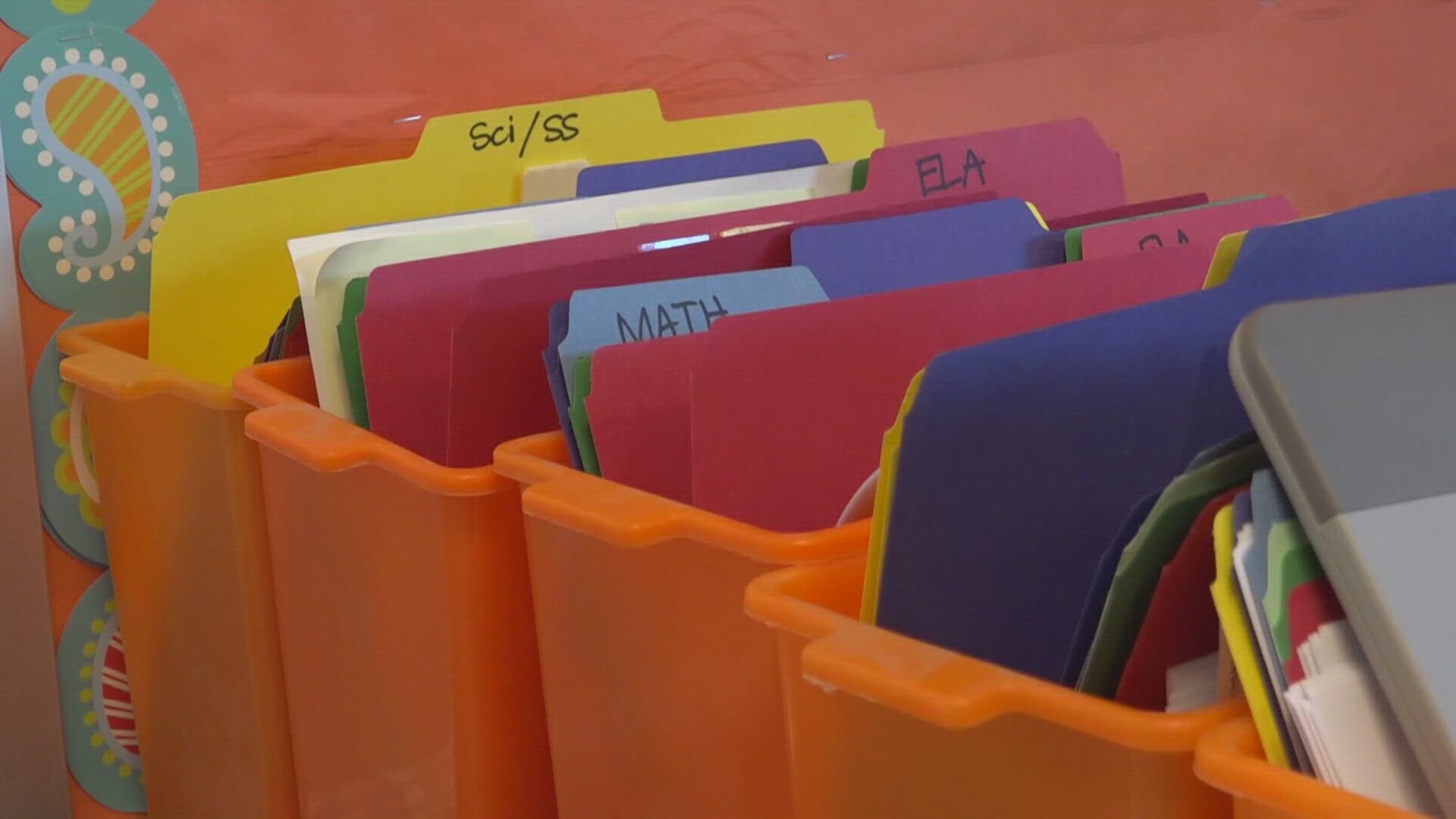GREENSBORO, N.C. — School has started and that means homework. Getting back into the swing of it can take some time.
Dr. Rebecca Jackson is the Chief Program Officer of Brain Balance. She said she is on a mission to help parents get their kids into a routine, that will help them thrive this school year.
She says when it comes to homework, set goals.
Jackson said our brain loves goals because when we set a goal, we get a dopamine hit. That is the neurotransmitter that makes us feel good and happy.
She suggests sitting down with your kids and setting long-term goals, like getting all A's this school year.
"It's why we like setting New Year's resolutions, we like signing up for that 5k, but that that feels good doesn't sustain for long," said Jackson.
To make that 'feel-good feeling' last longer, she said to make short-term goals. For example, every Sunday, look at the student portal together and ask questions. You can plan out a time and space to work on homework every day, set a routine, and even find a reward, like a treat at the end of the week for hitting those goals.
"We start the beginning of the school year with such good intentions, it's a fresh start, we're gonna stay on top of things, we're going to keep it positive, and then life gets busy and things tend to derail," she said. "To avoid this, sit down with your students and with your kids and as a family, set some goals, like we're going to check the portal together every Sunday so we can ask questions, we're going to set a goal of what the homework environment is going to look like.
She said it's important to listen to what your child wants to achieve that year and not push your goal on them, because your goal isn't going to trigger the feel-good feelings. She said the student needs to set their own goal for that.
Once you have the goals set, it's important to recognize when your child needs a break while working on the homework.
"There becomes a point in time where it's not effective or productive, so if your child is exhausted, they've completely burned out their resources, that might be the time to set it aside and take a break and revisit later or wake up early the next morning," said Jackson. "When we push beyond our children's abilities, it's not productive, it's not effective, we get angry, they feel discouraged, so it's really about meeting your child where they are at at the moment and then supporting their development through lots of movement and stimulation and exercise so that they can be more successful with that."
Dr. Jackson said to pay attention to your child's mood and emotions. If they are struggling with attention, give them a snack and get them to do physical activities. She said that will help reengage their brain and attention span, rather than fatiguing it further.
She said those breaks shouldn't involve watching TV or playing on the phone.
"Make sure when they come home from school, give them a break, and a break doesn't mean video games on their phone, it means doing something physical and active," said Jackson.
Other suggestions are to schedule a regular study time, set up a homework-friendly area, and be a positive motivator.
She said this should help you stay positive and aware of how your child is doing. If your child needs more help, it's important to reach out to the teachers at school to get your kid back on track or find ways to get them extra help.
"It's important for parents to know that change is possible, so if you have a child that's struggling, there are options and opportunities out there," she said. "There are programs like Brain Balance, there's tips and guidance and suggestions in the book 'Back on Track,' but just because you're at a point of struggle doesn't mean you need to be stuck there, and it's important that parents know their options and they know what tools and resources are available to help them get their child and family to a better place."
This advice doesn't just have to be for students, but for those that need to get work done. If you've got a lot on your plate, she suggests using that early energy to tackle the big stuff.
"We only have so many attentional resources for that sustained high-thinking attention, yet we drain a lot of resources with distraction, so every time we're working, and then the computer dings and you switch gears to answer an email, every time we shift gears with attention, we're burning resources and so we're so much better off learning to single task bonus, turn off all of the alerts, set aside all the distractions and then really focus on your hardest things first, because that's when we're going to have the best resource," she said. "I'd rather do the easy, busy work first, but then we're burning through the valuable resources and if start with the hardest things first, then you save the less involved things for the end when your attention is less sharp and focused."
She said since the pandemic, there has been a large amount of learning loss, so it's important to focus on your kids' learning.
For more tips, Dr. Jackson recently wrote a book called, 'Back on Track', which will be released on September 5th. It has more helpful tips on ways to get your kids thriving in the classroom.

